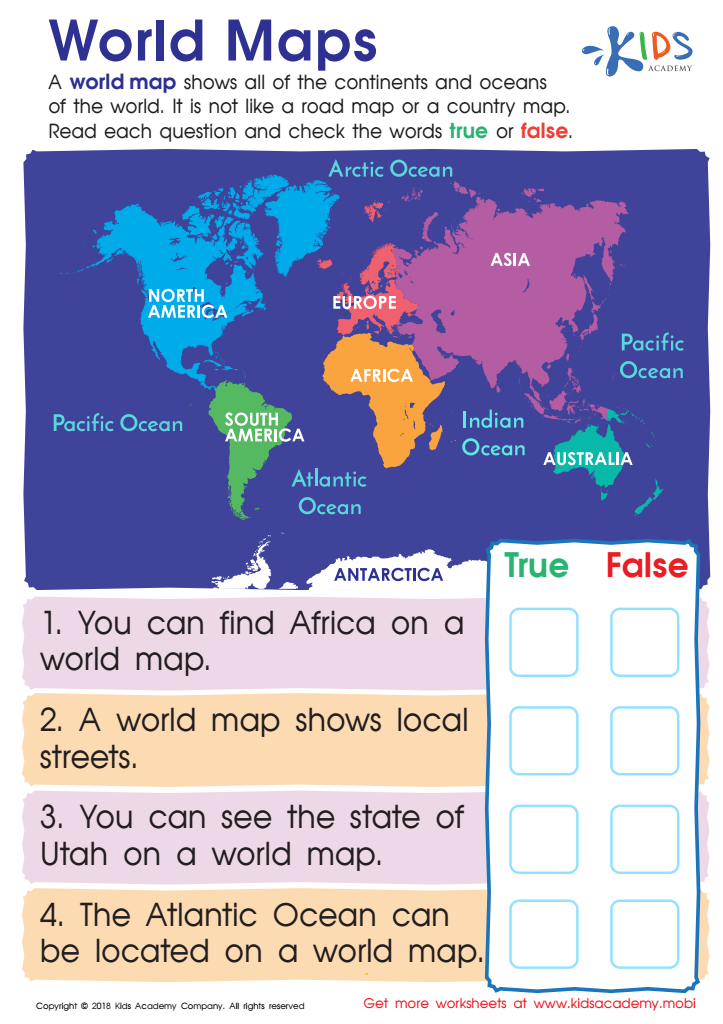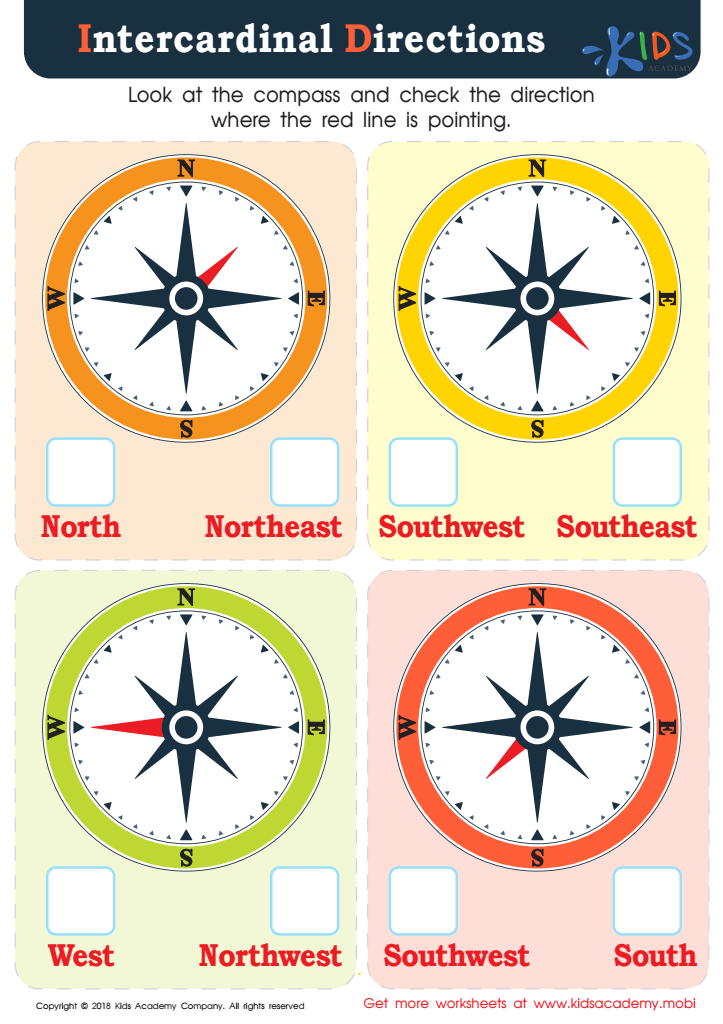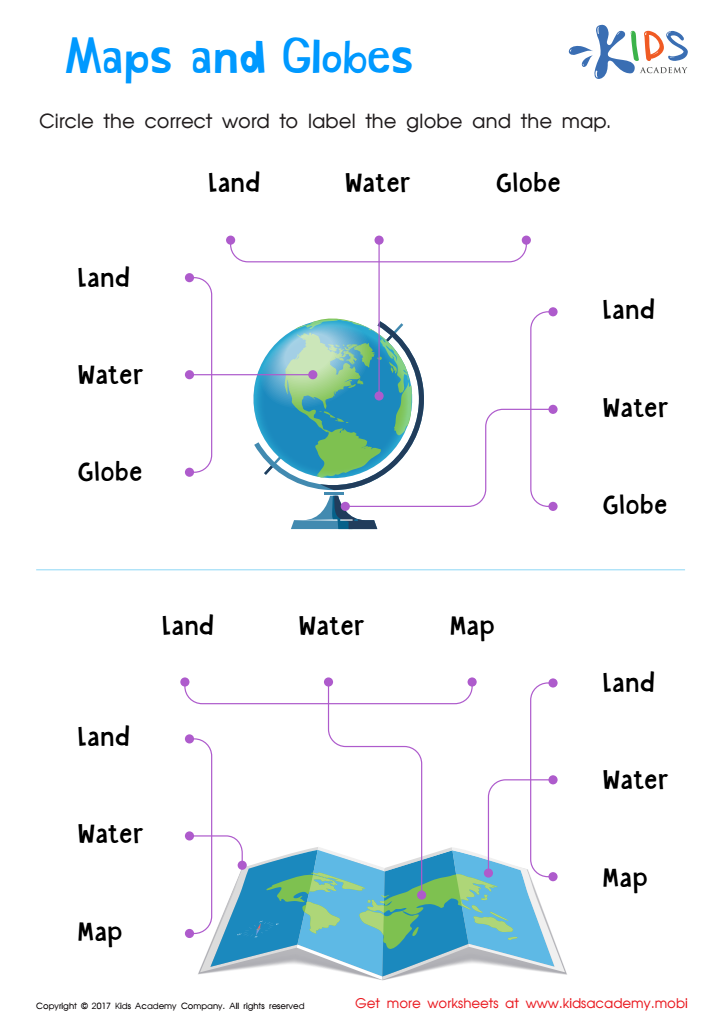Geography skills Social Studies Worksheets for Ages 3-8
3 filtered results
-
From - To
Discover engaging Geography Skills Social Studies Worksheets designed for ages 3-8 at Kids Academy. Our printable worksheets make learning fun and interactive, helping young learners explore maps, understand continents and oceans, and develop spatial awareness. Perfect for early education, these resources build foundational geography knowledge while enhancing critical thinking and problem-solving skills. With colorful visuals and age-appropriate activities, our worksheets are an ideal supplement for classroom learning or homeschooling. Visit Kids Academy to spark curiosity and foster a love for geography in your little explorers today!


World Maps Worksheet


Intercardinal Directions Worksheet
Geography skills in early childhood education play a crucial role in fostering a well-rounded, informed, and empathetic individual. For ages 3-8, integrating geography into social studies helps cultivate spatial awareness, cultural understanding, and a sense of global interconnectedness. When children learn about different places, landscapes, and environments, they not only enhance their cognitive abilities but also develop an appreciation for the world around them.
Parents and teachers should prioritize geography skills for several reasons. First, these skills lay down the foundation for critical thinking. Kids learn to ask questions, analyze information, and recognize patterns, which are essential for academic success across various subjects. Geography also supports language development by expanding a child’s vocabulary with terms related to locations, maps, and diverse cultural practices.
Moreover, understanding geography promotes cultural empathy and inclusivity. At a time when the world is more interconnected than ever, it’s vital for children to respect and appreciate cultural differences. This nurtures a generation that values diversity and practices tolerance.
Lastly, early geography education helps kids become responsible global citizens. By learning about environmental issues and natural resources, young children gain awareness of their role in protecting the planet. This whole-child approach ensures that geography knowledge arms children with social, cognitive, and emotional skills essential for lifelong learning and responsible citizenship.

 Assign to My Students
Assign to My Students







.jpg)














